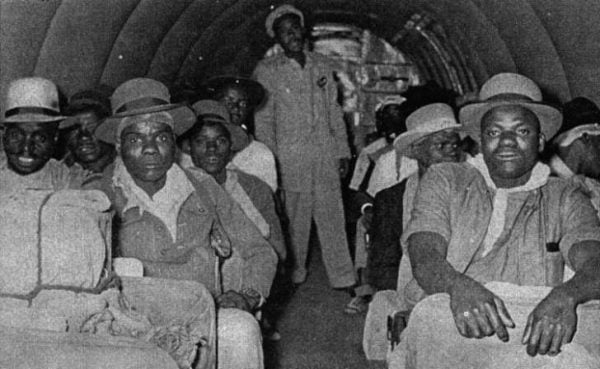Former Wenela miners to be compensated

ZIMBABWEANS who contracted tuberculosis or silicosis while working in South Africa’s gold mines in the 1970s are responding to the call by lawyers to register for a compensation class settlement, but a number of them are failing to understand the message.
Distortions have also been noted with a number of the inquiries made to the South African workers’ representatives showing that the ex-miners or their dependants were failing to appreciate the message put across by the lawyers in the advertisements.
Recently, South African mines reached a conditional settlement to pay compensation of up to R500 000 each to thousands of Zimbabweans who used to work in the neighbouring country’s mines in the 1970’s, subject to approval by the High Court.
According to a notice of proposed class settlement; six companies, African Rainbow Minerals, Anglo American SA, AngloGold Ashanti, Gold Fields, Harmony, Sibanye-Stillwater and some of the affiliate mining entities have reached a conditional settlement to pay compensation to eligible former Wenela mine workers and dependants of those who have passed away.
Wenela is an acronym for Witwatersrand Native Labour Association, comprising former Southern African mine workers drawn from Zimbabwe, Malawi, Botswana and Mozambique.
The proposed settlement is subject to certain conditions and must be approved by the High Court when it sits from May 29 to 31, 2019 in Johannesburg, South Africa.
A number of the former Wenela miners, who are inquiring on the class settlement, have the wrong impression that the court case had since been finalised and that they are now registering for the sake of receiving their dues.
Centre for Constitutional Rights South Africa representative Ms Phephelaphi Dube said she had been overwhelmed by phone calls following the advertisement in Zimbabwean newspapers and radio stations.
She, however, said a lot of misinformation was being peddled to the effect that a pension pay-out of sorts had been approved. Ms Dube said they were only assisting Zimbabwean ex-Wenela workers with relevant information while the South African and Zimbabwean Governments finalized talks over the issue.
“We know that they are a number of affected people in Zimbabwe who have no access to the right information. We are assisting them with information on how exactly former miners are going to be assessed,” she said.
An official from the Legal Resources Centre (LRC) in Johannesburg, who identified herself only as Lerato, said a number of Zimbabweans are responding to the call but there was a great deal of misinformation.
“We have received a number of calls from people who are mostly, misinformed. despite us having invited those who are exposed or those who contracted tuberculosis or silicosis, some are calling us with physical disabilities.
“Others will be wrongly informed that the case was completed and their registration is simply to receive money,” she said.
According to the proposed class settlement, pay-outs, if the High Court determines the case, would be accessed via a trust called Tshiamiso Trust that shall be established and would exist for a minimum of 13 years.
“The proposed settlement will settle the claims against the participating gold mining companies arising from the class action that was initiated before the High Court for (a) the harm and loss suffered by mine workers who contracted silicosis and/or tuberculosis (TB) during their work on certain gold mines in South Africa, and (b) the harm and loss suffered by the dependents of mine workers who died of the disease,” the notice read.
“Eligible claimants will be entitled to receive a once-off payment of between R10 000 and R250 000, depending on the nature and seriousness of the disease. In certain exceptional circumstances, this amount may be increased to up to R500 000,” reads the advertisement.
Thousands of Zimbabweans migrated to South Africa in the 1970s to work in the mines, but their pensions are yet to be released by the mining companies.
Many were not aware of the entitlements when they retired.
The Herald


